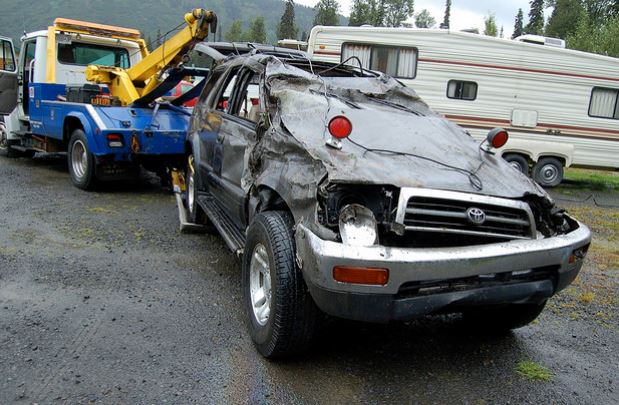
In the last week, we have seen two very important changes to our highway safety and traffic laws. The first is Senate Bill 102, sponsored by Senator Miguel Diaz de la Portilla, which increases penalties for drivers who leave the scene of an accident. The second is House Bill 225, sponsored by a number of Representatives, which changes the age when children are no longer required to be in a car seat. Both of these bills were signed into law last week by Governor Rick Scott. In this post, we will address the specifics of these two laws and how they could impact you.
Hit-and-Run Law :

Florida has an ever increasing problem with hit-and-run accidents. According to Florida Highway Patrol, an astonishing 70,000 hit and run accidents were committed in 2012. Despite this alarming number, not much was done to curtail the accidents from a legislative position until the death of 36-year-old Aaron Cohen. Cohen was riding his bicycle when a man named Michele Traverso struck him down. Traverso fled the scene, and although he did turn himself in, it was long after there would be any way to test him for driving under the influence. Traverso was sentenced to less than one year in jail.
This light sentence is what prompted Senator Diaz de la Portialla to take action. As the law stood, there was no mandatory-minimum for leaving the scene of an accident. Thus, in a perverse way, there was actually an incentive for drunk drivers to flee the scene of an accident, if they knew they would blow over the limit. As long as the driver who fled could escape custody in time to sober up, his chances of facing DUI manslaughter were greatly reduced. Thus, you ended up with sentences like Traverso received.
The new law greatly reduces that incentive through the following penalties. First, anyone who leaves the scene of an accident will now face a minimum-mandatory four year prison sentence. Second, the maximum sentence someone can serve for leaving the scene of an accident with serious injury will now increase from five to fifteen years. Third, the person’s drivers license will now be revoked for three years. Last, in the case of a fatal DUI hit and run, the minimum-mandatory sentence has increased from two years to four years in prison. This law goes into effect on July 1, 2014, and Florida lawmakers are hoping it serves as a strong deterrent to leaving the scene of an accident.
Child Seat Law :

Changes to the child seat law have been talked about for over a decade in Tallahassee. It is important to note that this bill is not nearly as strong as the original one sponsored by Representative Keith Perry. In Perry’s version, children would have been required to be in a car seat or booster seat until the age of seven and had to be at least be four feet and nine inches tall. These standards were too harsh to get passed, but a lighter version is now on the books.
The new law, which takes effect January 1, 2015, will require children to be in a child seat through the age of three. After three, and until the child is five, the parents can choose to have their child in either a car or booster seat, but the child must be in one or the other. Granted, there are a few exceptions to this law. For example, if the child is being transported by someone who not a member of the immediate family, such as a day care provider, then they are not subject to the same standards.
While it has taken Florida a long time to get this law on its books, we were one of only two other states who did not require children 4-5 to be in car or booster seats. According to the Centers for Disease Control, the risk to children aged 4-8 can be reduced by as much as 45% when they use a booster seat. For children aged 1-4, car seats can reduce the risk of injury by as much as 54%. Therefore, everyone is hoping this new law provides some more safety for our children when they are on the road.
Thanks for taking a moment to read our post. If you have any questions about the new laws, or legal questions in general, feel free to let us know. We are here to help.
-
April 18, 2024
Bicycle Accident Cases in Riverview, Florida -
April 18, 2024
Distracted Driving in Riverview, Florida -
April 18, 2024
Rideshare Accidents in Riverview, Florida -
April 18, 2024
Uninsured Motorists in Riverview, Florida
Contact Us
About Your Case
We're ready to fight on your behalf. Request a free, no-risk consultation with our attorney's today.


